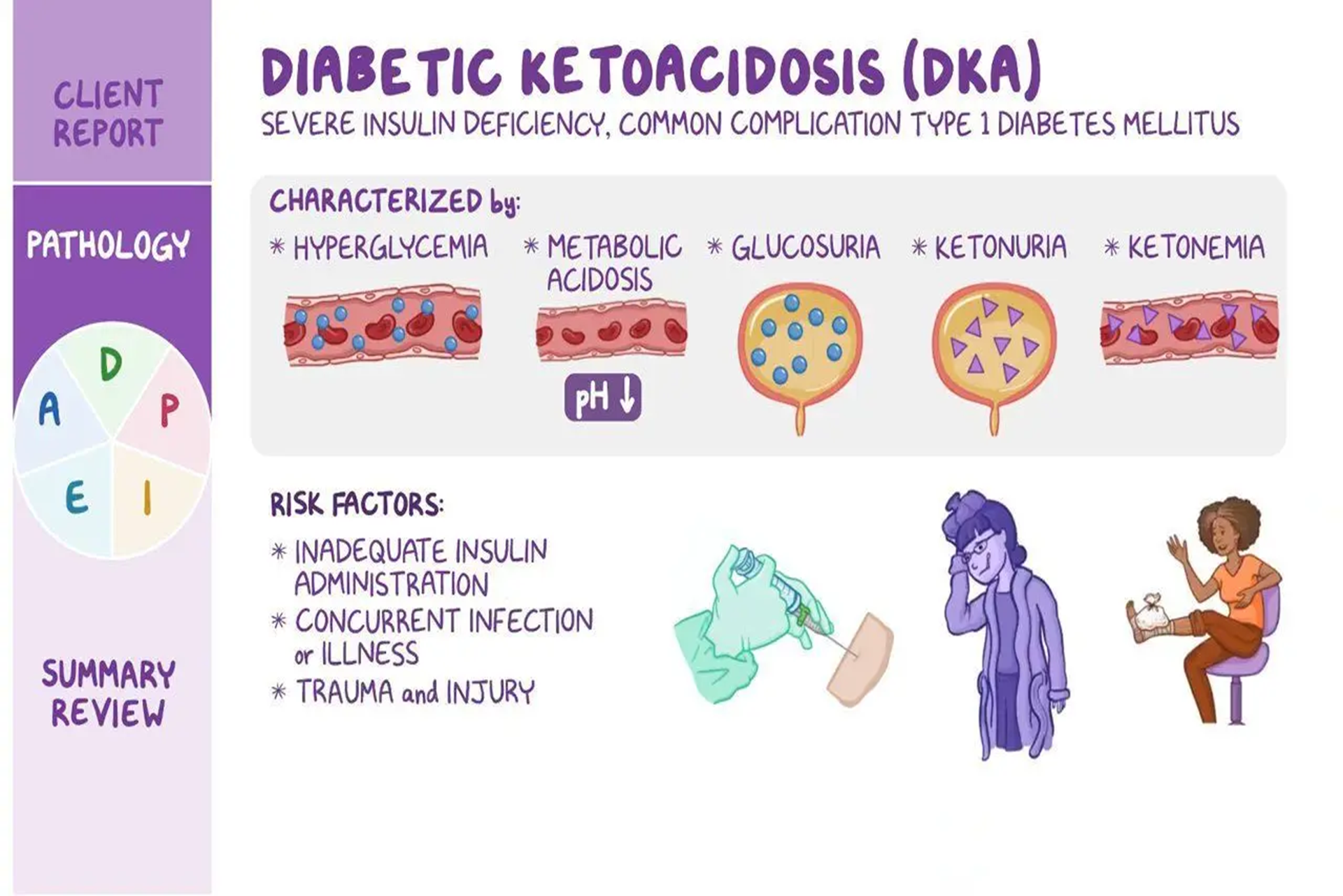
Overview:
Diabetic Ketoacidosis (DKA) is a severe complication of diabetes, primarily occurring in individuals with type 1 diabetes, though it can also affect those with type 2. DKA results from a shortage of insulin, causing the body to break down fat for energy, leading to the production of ketones. The accumulation of ketones in the blood leads to a toxic condition, marked by a significant increase in blood acidity, which can be life-threatening if not treated promptly.
Causes:
DKA is typically triggered by insulin deficiency, often due to missed insulin doses, infection, illness, or stress. Other factors like dehydration, alcohol use, and certain medications can also precipitate DKA. The lack of insulin leads to elevated blood sugar levels and excessive fat breakdown, resulting in the production of ketones.
Symptoms:
Symptoms of DKA include excessive thirst, frequent urination, nausea, vomiting, abdominal pain, fruity-smelling breath, confusion, and difficulty breathing. As the condition worsens, it can lead to coma and, in extreme cases, death if untreated.
Treatment:
The treatment of DKA requires immediate medical attention, typically in a hospital setting. The primary treatment includes intravenous fluids to rehydrate the body, insulin to lower blood sugar levels, and electrolyte replacement. Once the blood sugar levels stabilize, the underlying cause, such as an infection, should be addressed.
Precautions:
Patients with diabetes should monitor their blood glucose and ketone levels regularly, especially during illness or stress. It’s crucial to follow the prescribed insulin regimen and seek medical attention at the first signs of DKA, such as high blood sugar, ketones in urine, or unusual symptoms.
Prevention:
Maintaining proper blood glucose levels, consistent insulin therapy, and staying hydrated can prevent the onset of DKA. Regular check-ups with healthcare providers and managing any infections or illnesses promptly are also essential preventive measures.
For expert care in managing Diabetic Ketoacidosis, visit The KDM Hospital in Lucknow, offering ambulance services, budget-friendly care, Ayushman card acceptance, and 24/7 doctor availability.
